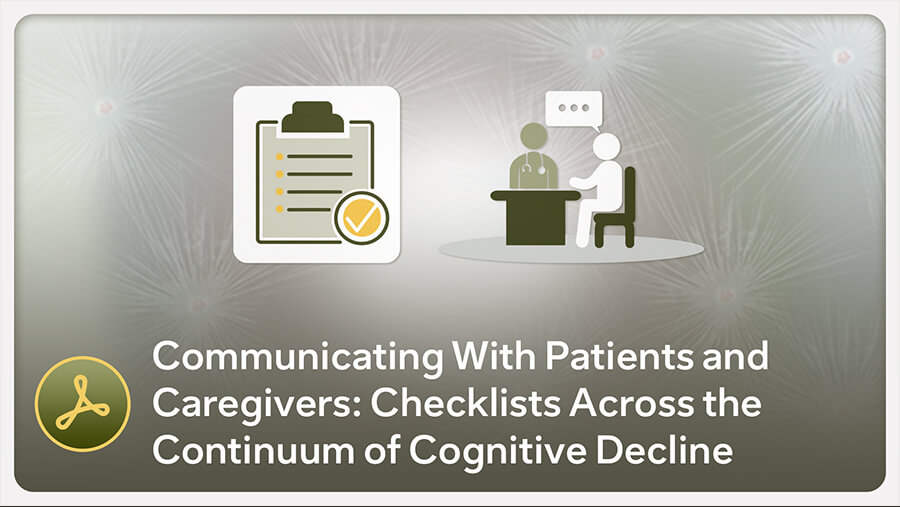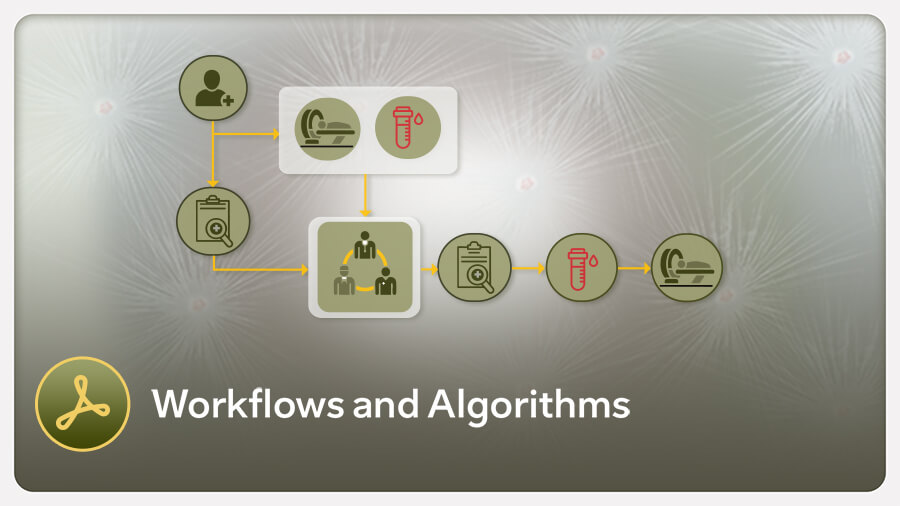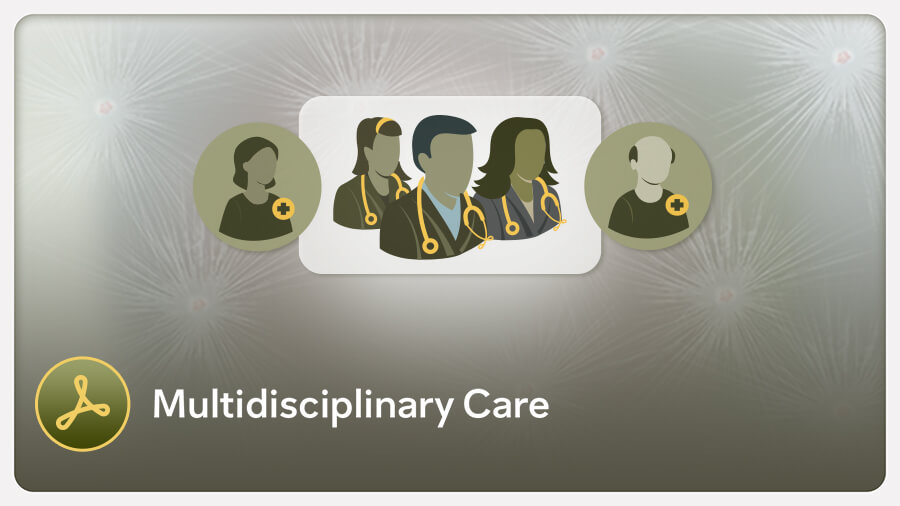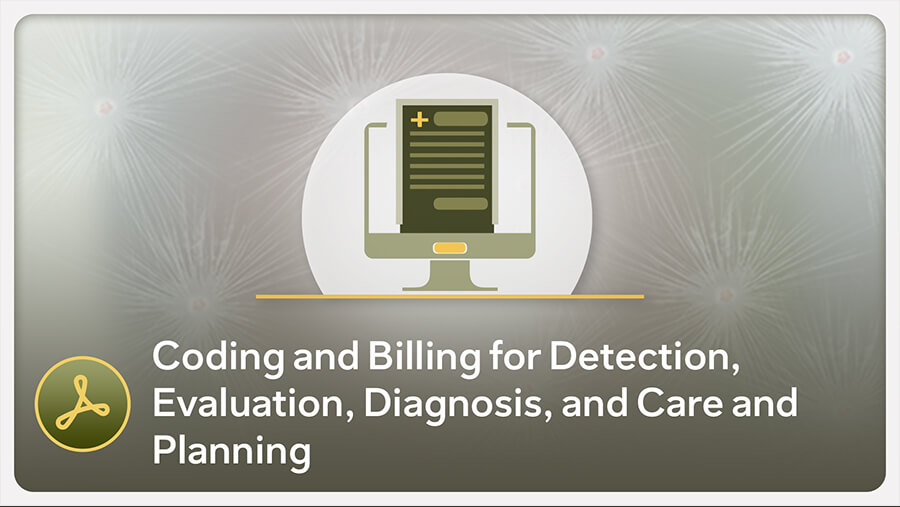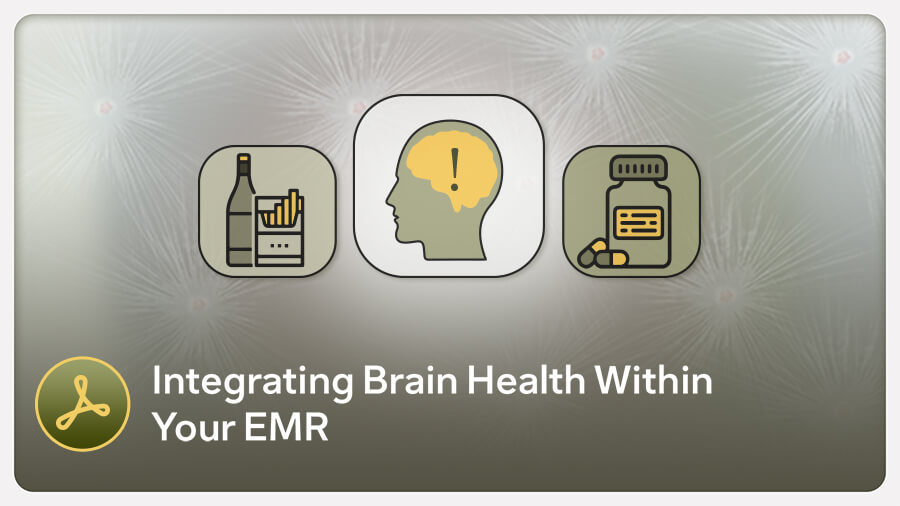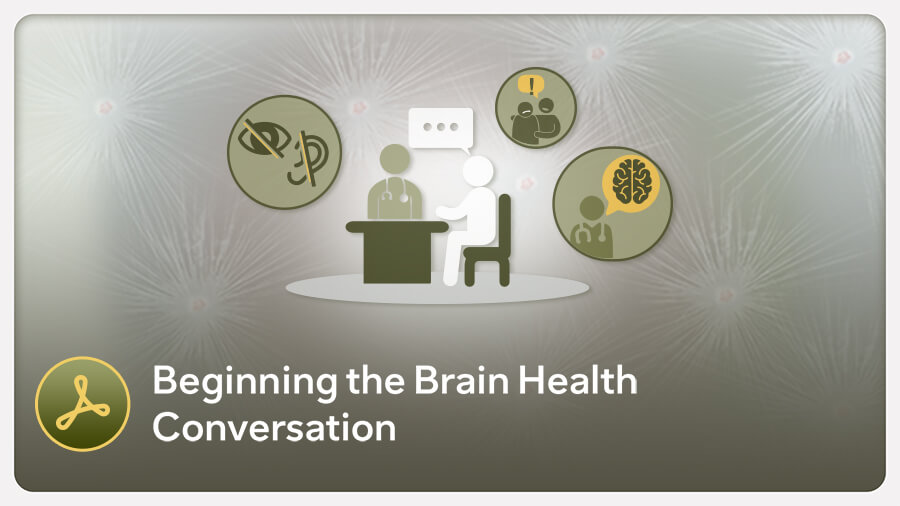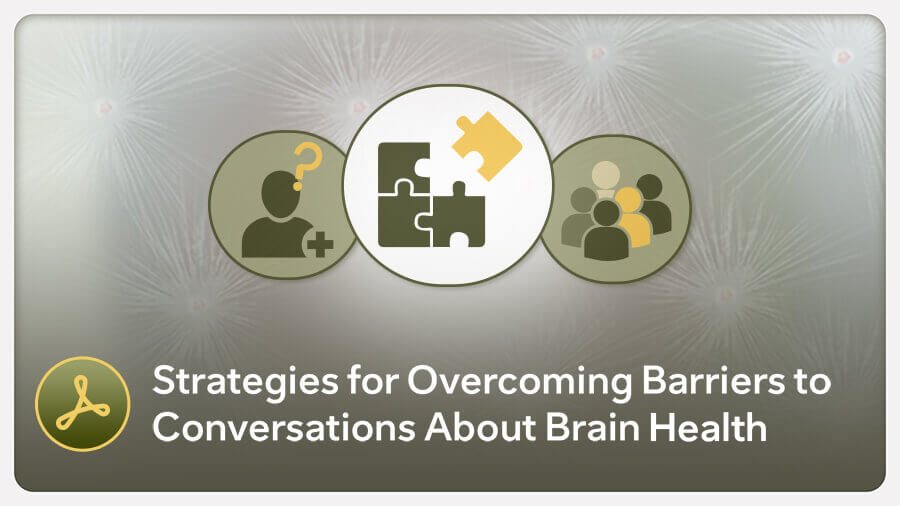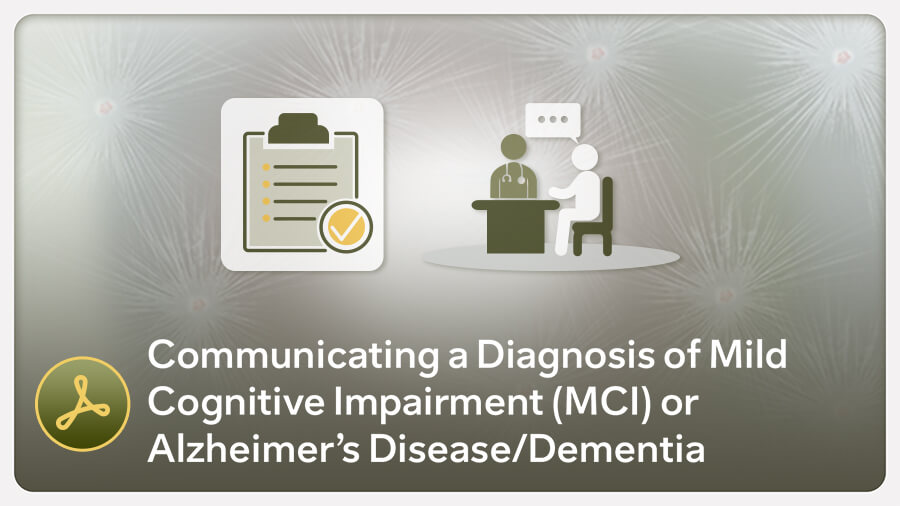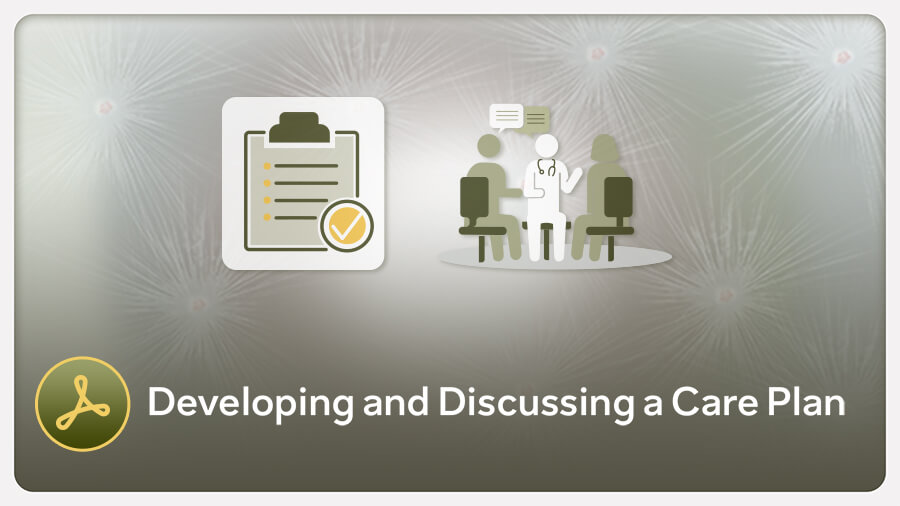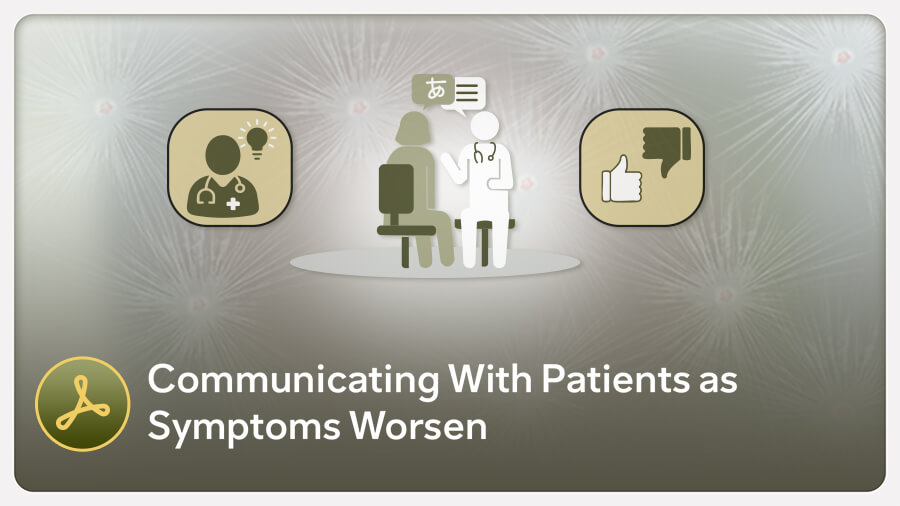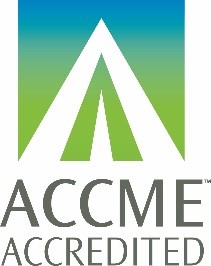
Reframing Expectations for HCPs, Patients, and Caregivers
Conversations Around Brain Health:
Discussing Brain Health
View these animated whiteboards to learn about brain health, interventions to reduce the risk of cognitive decline and Alzheimer’s disease, and how to talk to your patients about brain health. If you would like to view the animated whiteboard developed for patients, click here.
Education Modules
View these video modules to learn more in-depth information about brain health, modifiable risk factors for cognitive decline and Alzheimer’s disease, progression of Alzheimer’s disease, and communication strategies you can use in clinical practice.
Expert Guidance You Can Apply in Your Practice
Infographics You Can Use in Your Practice
Additional Resources
Guidelines and Recommendations
-
Mielke MM, Anderson M, Ashford JW, et al. Recommendations for clinical implementation of blood-based biomarkers for Alzheimer’s disease. Alzheimers Dement. 2024;20(11):8216-8224.
-
Sabbagh MN, Perez A, Holland TM, et al. Primary prevention recommendations to reduce the risk of cognitive decline. Alzheimers Dement. 2022;18(8):1569-1579.
-
Testai FD, Gorelick PB, Chuang PY, et al. Cardiac contributors to brain health: a scientific statement from the American Heart Association. Stroke. 2024. doi: 10.1161/STR.0000000000000476. Online ahead of print.
-
The Alzheimer’s Project Physician Guidelines for the Screening, Evaluation, and Management of Alzheimer’s Disease and Related Dementias
Practical resources and toolkits
Articles of interest
-
Alzheimer’s Association. 2024 Alzheimer’s disease facts and figures. Alzheimers Dement. 2024;20(5):3708-3821.
-
Borson S, Small GW, O’Brien Q, Morrello A, Boustani M. Understanding barriers to and facilitators of clinician-patient conversations about brain health and cognitive concerns in primary care: a systematic review and practical considerations for the clinician. BMC Primary Care. 2023;24:233.
-
Guevara AB, Bieler M, Altomare D, et al. Protocols for cognitive enhancement. A user manual for Brain Health Services – part 5 of 6. Alzheimers Res Ther. 2021;13(1):172.
-
Livingston G, Huntley J, Liu KY, et al. Dementia prevention, intervention, and care: 2024 report of the Lancet standing Commission. Lancet. 2024;404(10452):572-628.
-
Ranson JM, Rittman T, Hayat S, et al. Modifiable risk factors for dementia and dementia risk profiling. A user manual for Brain Health Services – part 2 of 6. Alzheimers Res Ther. 2021;13(1):169.
-
Visser LNC, Minguillon C, Sanchez-Benavides G, et al. Dementia risk communication. A user manual for Brain Health Services – part 3 of 6. Alzheimers Res Ther. 2021;13(1):170.
-
Wollney EN, Armstrong MJ, Bedenfield N, et al. Barriers and best practices in disclosing a dementia diagnosis: a clinician interview study. Health Serv Insights. 2022;15:11786329221141829.
Resources for patients and caregivers
-
Animated whiteboard
-
Easy steps for taking care of your brain
-
Talking with your healthcare provider about brain health
-
Is it normal aging, or something more?
-
What is the difference between mild cognitive impairment (MCI) and dementia?
-
How are mild cognitive impairment (MCI) and dementia diagnosed?
-
What are the treatment options for mild cognitive impairment (MCI) and Alzheimer’s disease?
-
Helpful links for patients and families
Hear from our faculty about the importance of discussing brain health and addressing modifiable risk factors for cognitive decline and dementia in primary care:
With this conversation, hopefully we’ll give you resources, processes, tools, and strategies to transform brain care for your patients… by overcoming the big problem of undocumented dementia and mild cognitive impairment and by overcoming the stigma that there’s nothing you can do for people living with dementia.
– Malaz Boustani, MD, MPH
I compare it [brain health] with depression screening or mental health assessments. A few years ago, we didn’t do them and we might have felt uncomfortable asking patients about depression symptoms, but now we do it routinely. So, [brain health] is similar. Now we have the tools to do those assessments quickly.
– Diana Summanwar, MD
